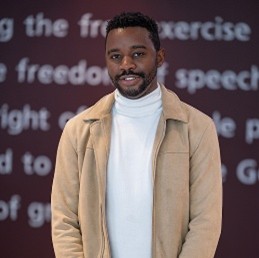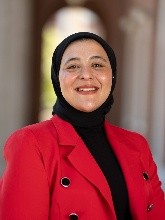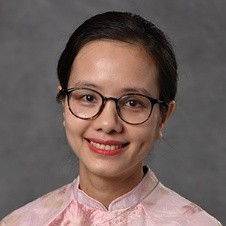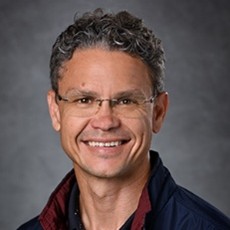Harper Alert: Due to extreme cold, Harper College campuses will be closed Friday, January 23. Learn more: http://bit.ly/36jRbZ8
Discover a wealth of resources for international education at the community college level on our comprehensive resource page. Enrich your teaching practices and help your students succeed in an increasingly globalized world.
Please mark your calendars for April 10, 2026! We will be hosting our 17th Annual International Education Summit in the Wojcik Conference Center. Join us for a day of ideas and innovation in global education. This year’s theme, Beyond Borders, Beyond Buzzwords: Results that Resonate in Global Education, challenges us to move past empty rhetoric and focus on highlighting practices that truly make a difference. We are seeking proposals that showcase measurable outcomes, transformational student impact, expanded access, and sustainable global engagement across the college.
The thematic tracks for this year’s Summit include Study Abroad, International Students & Scholars, Leveraging Technology (ie, virtual exchange), International Enrollment and Student Services, and Internationalization at Home. Please consider submitting a proposal to share your strategies, research, and success stories! Either way, we hope you will join your colleagues committed to advancing meaningful global learning.
Registration, proposal submission and schedule.
Deadlines:
Proposal Applications due by: February 20, 2026
This spring, we are hosting four Hubert H. Humphrey Fellows through the Community College Residency Program. Coming from different countries and fields of study, these fellows enrich our campus with their academic expertise and lived experiences. We invite you to review their bios and connect with our office to explore opportunities to engage with them through classes, events, or collaborative activities.

Farayi Machamire
Sr. Communications/Journalism
Zimbabwe
Farayai Machamire is co-director and managing editor of Kukurigo Information Services, a social enterprise transforming news delivery in Zimbabwe. Through WhatsApp, Kukurigo reaches more than 400,000 people daily, encouraging civic engagement and promoting accountability. Machamire and his team have built a trusted platform that appeals to audiences often disengaged from traditional news by prioritizing creativity, integrity and accessible delivery. In an era of widespread misinformation, Kukurigo stands out as a credible news source. Machamire aims to scale the platform to 1 million daily subscribers within three years. Through the fellowship, he seeks to deepen his understanding of international frameworks and expand his perspective on governance, diplomacy, public affairs and policy to further his mission.

Eman Elsokary
Educational Administration, Planning & Policy
Egypt
Dr. Eman Elsokary joins the Humphrey Fellowship as a healthcare educator, accreditation specialist, and development leader with a strong focus on advancing the quality and inclusivity of medical education and professional training in Egypt. Currently serving as an Assistant Professor of Nursing at Helwan University, she plays a pivotal role in curriculum design and instructional development.
Dr. Elsokary holds a Master’s degree in Monitoring and Evaluation from the Institute of National Planning and a Technical Master Trainer Certificate from the Egyptian-German Technical Academy–Siemens. She previously earned degrees in nursing and higher education.
During her Humphrey Fellowship, Dr. Elsokary intends to explore best practices in competency-based medical education, health workforce development, and international accreditation standards. She seeks to strengthen Egypt’s healthcare training infrastructure by building systems that are inclusive, sustainable, and globally aligned. Long-term, she aims to help Egypt scale its accreditation and capacity-building initiatives, ensuring health professionals are better equipped to meet emerging national and global challenges.

Trang Thi Quynh Vu
Finance & Banking
Vietnam
Trang Vu is an influential leader in Vietnam’s finance and banking sector who prides herself in delivering tangible benefits to businesses and members of her community. Trang Vu is currently the Head of Investor Relations at Joint Stock Commercial Bank for Investment and Development of Vietnam (BIDV), one of the country’s largest state-owned banks. At BIDV for the past twenty years, she has been deeply involved in equitization, mergers and acquisitions, strategic investor sales, private placement, corporate governance (CG) and Environmental Social Governance (ESG).
Trang’s Humphrey Fellowship goals include deepening her understanding of CG and ESG, particularly as they attract foreign investment, lead to cost savings, keep ahead of changing regulations, and lead to a stable and supportive shareholder base. Ultimately, Trang plans to leverage insights gained during her fellowship to contribute to a more transparent, ethical, and sustainable business environment leading to better societal outcomes such as reduced poverty, improved public health, and environmental conservation.
In addition to other topics, she is available to speak on the following:

Jerome Kisting
Economic Development
Namibia
Jerome Kisting is a venture capital investor committed to driving economic transformation in Namibia and across Africa through strategic investment in industrial innovation. He is the Founder and Chief Investment Officer of Baobab Capital, Namibia’s first venture capital firm, where he leads early-stage investments in industrial startups across Southern Africa. Under his leadership, Baobab Capital raised a pioneering $10 million first-time fund, deploying capital into businesses positioned to accelerate regional development. He is currently spearheading efforts to determine more appropriate funding models for financing early-stage companies in Africa. Jerome’s professional interests lie at the intersection of regional integration, sustainable industrialization, and supply chain finance. He brings a sharp understanding of how capital, policy, and entrepreneurship can work together to reshape African economies from within.
As a Humphrey Fellow, Jerome intends to enhance his leadership capabilities and explore innovative funding models tailored to African industrial development. His focus area includes lessons from American supply chains that can inform the evolution of African supply chain finance to catalyze industrial development. He also seeks to build lasting connections with global institutions at the forefront of investment, policy, and industrial transformation. Ultimately, Jerome’s goal is to scale the reach and effectiveness of early-stage industrial investment by advocating for enabling regulatory environments that empower entrepreneurs and capital providers to drive inclusive, long-term growth across the continent.
In addition to other topics, he is available to speak on the following:
The International Travel Authorization Form is designed to streamline the approval process for Harper College faculty and staff traveling internationally for College-related professional development purposes. By completing this form, travelers will not only facilitate the required authorization but also have the opportunity to articulate the professional value of their travel and its potential impact on Harper College.
This form is to be used for international travel, which may include—but is not limited to—study or research, site visits, internships or service projects, conferences or presentations, teaching, performances, athletic competitions, and other similar professional opportunities.
Before submitting this form, all Harper personnel must review the Harper College International Travel Policy Manual to ensure compliance with current policies and procedures.
Please note: The College reserves the right to prohibit or suspend international travel for College-related purposes if significant health, safety, or security concerns pose a high level of risk. Harper College does not permit travel to countries that are under a U.S. Department of State Travel Advisory Level 3 (Reconsider Travel) or Level 4 (Do Not Travel) at the time of proposal or travel.
Working through the shared governance Curriculum Committee, the Office of International Education has aligned the student learning outcomes for the World Cultures and Diversity graduation requirement with its Global Learning Outcomes. There are six learning outcomes intended to promote awareness of and respect for the uniqueness and plurality of the identities of the groups and societies making up humankind.
All faculty-led study abroad programs must include at least two of these outcomes, and most faculty professional development workshops and projects associated with the Global Region of Focus are tied to these outcomes. Since the adoption of these Global Learning Outcomes, OIE has conducted annual campus-wide assessment of transfer and study abroad programs. Although the results are inconclusive, they suggest a correlation between number of credit hours achieved at the college and competence in the areas assessed. OIE is working with the Office of Outcomes Assessment to align assessment of these outcomes with the campus-wide assessment of the Diverse Perspectives and Cultures General Education outcome.
Harper College is a Board Member Institution. In addition to an annual conference, CCID sponsors a number of faculty development opportunities throughout the year.
PIC-AMERICAS promotes the internationalization of academic programs at higher education institutions in the Americas through the Collaborative Online International Learning (COIL) methodology, strengthening global competencies, collaborative work, and professional development for teachers. Harper College is a member institution of AMPEI.
Digital Promise is a global nonprofit dedicated to advancing equitable education by collaborating with educators, researchers, and communities to design and scale innovative learning solutions. With a mission to shape the future of learning through the integration of research, practice, and technology, Digital Promise focuses on real-world challenges, from expanding internet access to supporting lifelong learning, all while centering equity and innovation.
The University of Minnesota Outreach Institute for Global Studies Outreach Program provides resources for faculty to make connections across cultural, geographic, and disciplinary boundaries through professional development seminars for educators.
The Global Center aims to foster global engagement, understanding, and responsibility by creating cross-cultural learning environments through faculty development, internationalization of the curriculum, and community engagement.
The Center for Middle Eastern Studies (CMES) supports and promotes Middle Eastern languages, teaching, and research throughout the University. CMES fosters understanding of the Middle East through an extensive program of outreach to schools and the wider community.
The Institute of International Education (IIE) administers the world-renowned Fulbright Scholar Program.
Faculty Development Seminars: https://www.caorc.org/faculty-development-seminars
CAORC is a network of American overseas research centers (ORCs) that offers fully-funded overseas seminars that help faculty and administrators at US community colleges and minority-serving institutions gain international experience with the aim of developing and improving international courses, curricula, and teaching materials at their home institutions.
Participants in this hybrid residential/virtual research lab work to develop global studies curricula and instruction in less commonly taught languages, expand library collections, or establish international education programs at their home institutions. Throughout this intensive summer program, faculty take part in workshops and networking activities aimed toward supporting and sharing their work in a community environment.
Select participant type "Faculty/Administrator" to see a list of this nonprofit organization's programs for faculty, including the Visiting Faculty Program, Title VIII Research Fellowships, and Faculty Training, Linkages, and Research, as well as individual programs in several countries.
Intercultural Ireland is offering a wide variety of online modules on a wide variety of courses including history, literature, theatre, art, social justice, global studies, environmental science, and more! Learn More.
The Smithsonian National Museum of African Art (Washington, D.C.) has online resources for educators and exhibits that you can use in your classroom
Free registration with University of Pittsburgh's Asian Studies Center gives you access to online modules and other resources.
The Arab Studies Institute has a "Learn & Teach: Syria" page with a lot of resources on the ongoing Syrian conflict.
TeachMideast has great resources for students and faculty, including “Week in Review” news updates, country profiles, and multimedia tools on major topics and themes.
The Asia Society’s purpose is to navigate shared futures for Asia and the world across policy, arts and culture, education, sustainability, business, and technology. They are dedicated to identifying pathways for Asia and the world which enhance peace, prosperity, freedom, equality, and sustainability. Their website has a lot of resources, including:
The Theresa Lozano Long Institute of Latin American Studies offers several online and hybrid events that focus on Latin America.
The Einaudi Center offers several online events and seminars that delve into current international issues.